
Unlock the Editor’s Digest for free
Roula Khalaf, Editor of the FT, selects her favourite stories in this weekly newsletter.
The architect, collector and art patron Luca Bombassei is sitting comfortably on a long, pale sofa in the 15th-century Palazzo Contarini Corfù in Venice, just around the corner from the Accademia art gallery. He is surrounded with art and design, but there is a surprising diversity in his taste. Above him hangs a traditional painting — Canaletto’s “Architectural Capriccio with Classical Ruins” (1723) — and opposite that is a massive contemporary piece, “Life of Forms” (2017) by the American artist Nathlie Provosty.
“The idea was to create a dialogue between the two works, there are so many details in the Canaletto and then the Provosty is just all-black,” he says. Beside him on a table stands a sculpture by Ettore Sottsass of the Memphis Group of postmodern designers.
The place almost dictates the art as much as the owner. In the adjoining library, a wall is covered with Venetian glassworks from the 1920s to the 1960s, displayed on shelving by Italian architect and designer Osvaldo Borsani. “When you live in Venice, you notice the special light that reflects through them,” Bombassei says. “They make me feel more Venetian!”
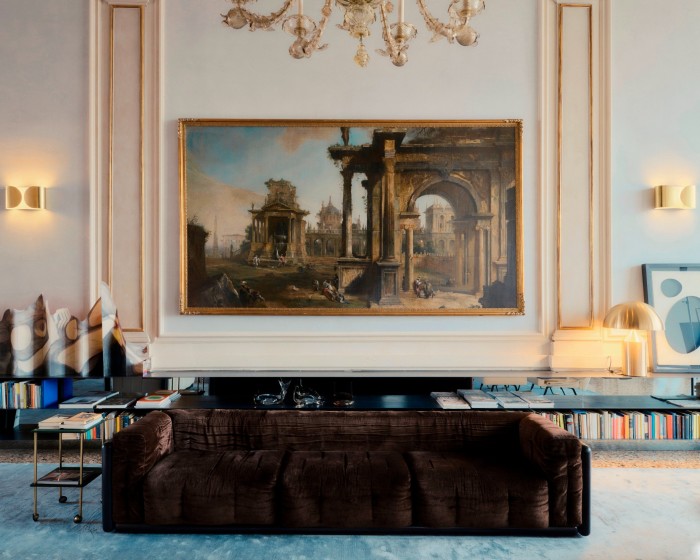
Bombassei was born in 1966 and lives between his flat in Venice, a masseria (fortified farmhouse) in Nardò, Apulia, and Milan, where his architectural practice specialises in the restoration of historical houses. “In Italy, there is a not a big distinction between architect and interior designer,” he says. “As I am a collector myself, I understand what it means to build a home around art, I have that sensitivity.”
He was brought up surrounded by art; his parents, the majority shareholders in the brake-disc company Brembo and collectors of traditional Italian art, still have an apartment in the neo-Gothic Casa dei Tre Oci on the island of Giudecca in Venice. As a young man he had to go through the cultural institute it housed at the time to get home in the evening. “My friends thought it was just incredible to live above a museum,” he laughs.
Bombassei’s Venetian home reflects the diversity of his taste, and he says he likes changing his mind and experimenting so that he can become “a better interior designer”. Along with the Canaletto and the Provosty, there is a portrait by Alex Katz (“East Interior”, 1979), an untitled Anish Kapoor wall sculpture from 1999 and Jenny Holzer’s 1987 LED piece “Laments: I am a man . . . ” which stands almost three metres tall, with red and yellow diodes spelling out the title. In his all-grey bedroom are a Sottsass Totem, a colourful stack of bulbous shapes, and a mushroom-like Gae Aulenti lamp. It is all shifted around regularly: “I always have a hammer and nails on me!”
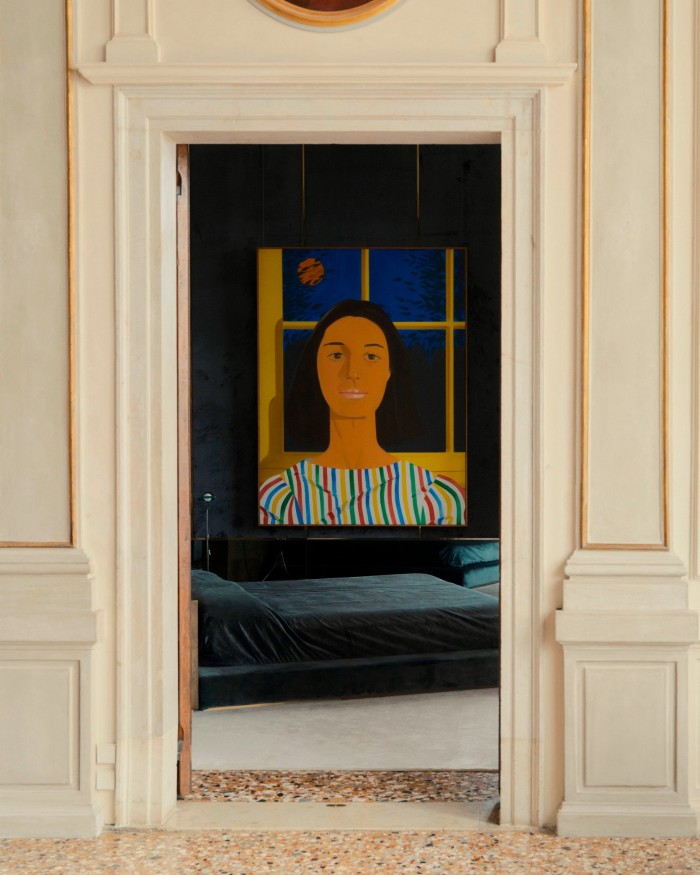
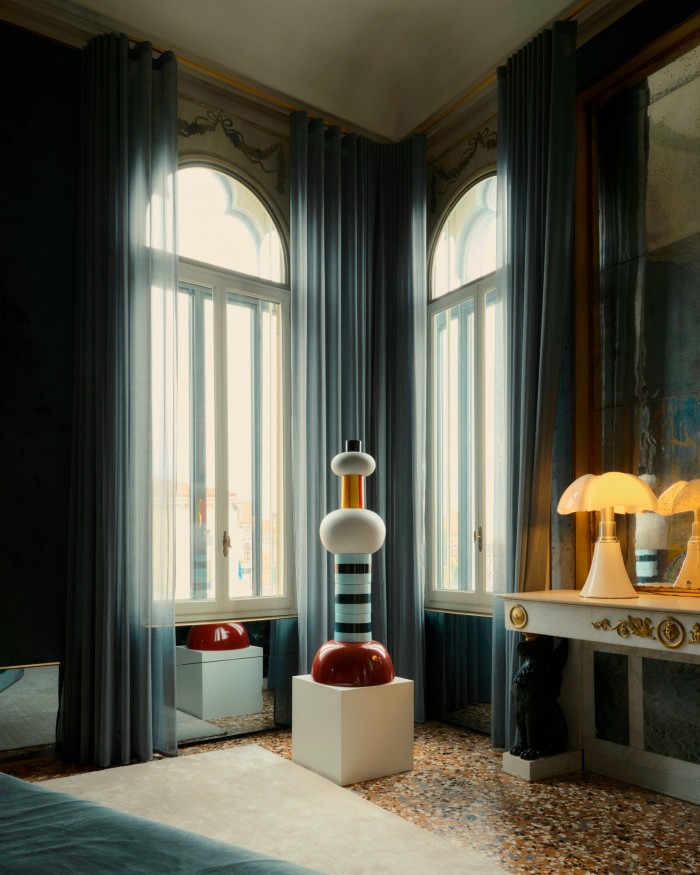
Bombassei’s first love is Sottsass, of whom he has considerable holdings — from objects and furniture to limited editions. The designer, who experimented with colour, patterns and shapes and made furniture, glass and ceramic objects, was also an architect who worked in Milan. “He and his [Memphis] Group represented a period of innovation and they changed the way we think about design, bringing an artistic vision to design.” Together with Milan and Memphis, “Sottsass is my triangle of love.”
In Milan, Bombassei’s office is lined with wood panelling by Piero Fornasetti, a recreation of the decor originally in the Milanese apartment La Casa di Fantasia, designed by Gio Ponti for the Lucano family in 1952. In trompe l’oeil they show books, postcards and medallions on a floral background. The ensemble was bought at auction at Phillips in London in 2019 for £225,000.
And then there is his home in Nardò, which he says gives him the space to commission large-scale works of art — not least an enormous yellow-and-blue work by the Swiss artist Olivier Mosset (“Wall Painting”, 2019), covering the roof. “When you walk on the roof you feel you are inside the work and at the same time you can see a 15th-century tower in the distance.”#
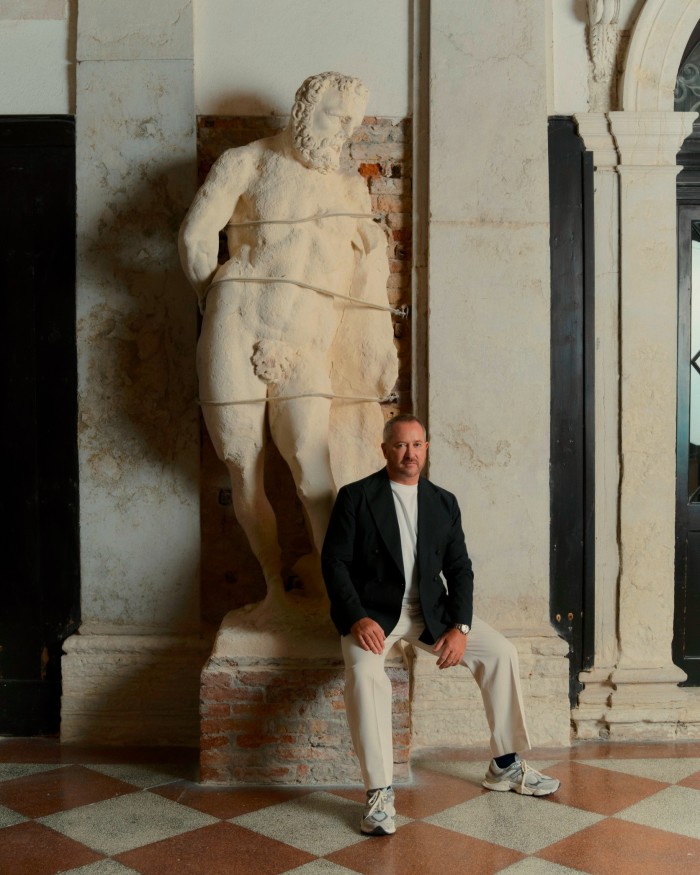
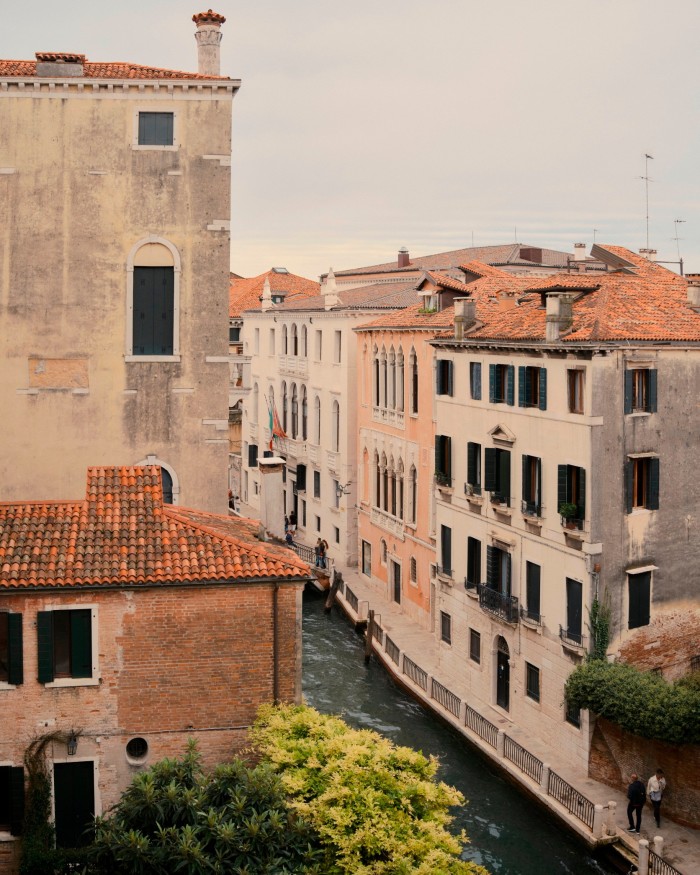
As well as overseeing his practice, Bombassei presides over the Venice International Foundation, which both helps safeguard the artistic heritage of Venice and promotes contemporary art. I am rather surprised by this — we meet during the Biennale, when the city is awash with contemporary art — but he explains that most Venetian foundations focus on what he calls the past-past. “We support the near-past, for example by sponsoring [this year’s Francesco] Vezzoli exhibition in the Museo Correr. Most people don’t see the wonderful Carlo Scarpa installations on the upper floor, so this encourages them to go up to see them as well as the Vezzoli,” he says.
What are his plans for the future? He looks a bit baffled, admitting that he hasn’t really thought about this. “I am so curious, I fall in love with new places and things all the time,” he says, so for the moment, he continues to plan, design and buy. As he says, “Collecting is a sort of addiction.”
lucabombassei.com

